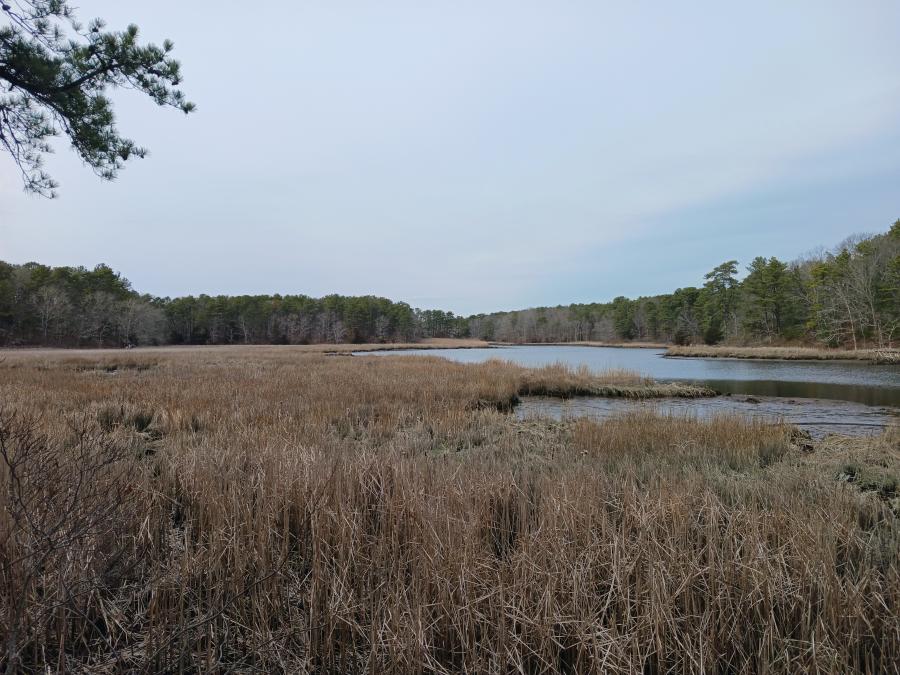
By Olivia Bradley
The Menominee Nation is working tirelessly to spread the word about its NoBack40 Initiative, which aims to combat the Back Forty Mine Project - a project threatening sacred land and the environment, in particular the Menominee River.
The Menominee Indian Tribe of Wisconsin has lived in Wisconsin and parts of Michigan and Illinois for 10,000 years. They previously lived on over 10 million acres of land, but treaties dating back to the 1800’s have reduced this to 235,000 acres. In the 1950’s, Congress passed the Menominee Termination Act, which withheld federal recognition of the Tribe. Federal recognition was reinstated in 1973 when, after years of activism by the Menominee Nation, the Menominee Restoration Act was passed.
The Menominee Tribe includes five communities, Keshena, Neopit, Middle Village, Zoar, and South Branch. The Menominee Nation’s cultural and spiritual connection to the Menominee River goes back thousands of years, to their creation story. The Menominee have no migration story because their creation story begins at the headwaters of the Menominee River. The first Menominee was created when the Ancestral Bear came out of the Menominee River and became human. An Eagle joined the Bear, and so on until the five main clans (Bear, Eagle, Wolf, Moose, and Crane) were formed. Today, the Menominee’s reservation is only sixty minutes from their ancestral place of creation. Clearly, the Menominee River has vital cultural significance for the Menominee People as the birthplace of their people and Nation.

However, the mine does not only threaten the river. The banks of the river are home to miles of complex raised garden beds, ancient village sites, burial sites, and other sacred sites. There is a concentration of these sites at the Sixty Island area where the proposed mine would be located. The construction of the mine could destroy these raised beds, which are historically important to understanding the techniques used to grow corn and other agricultural plants at that latitude. It could also destroy nearby sites of worship and burial mounds. The river has sacred cultural significance, as well as ecological and environmental importance.
According to Starlyn Tourtillott, an assistant tribal attorney for the Menominee Tribe of Wisconsin, the Back Forty Mine Project would be, if materialized, an open pit sulfide mine that would extract zinc, copper, gold and silver. It is run by Aquila Resources Inc,, a Canadian company, which has spent 10 years and more than $70 million trying to advance this harmful project. The mine would be located only 150 feet from the Menominee River. This is culturally and environmentally troubling. The Back Forty Mine Project needs four permits to begin its construction. It has already been granted three - the Nonferrous Metallic Mineral Mining Permit, the Michigan Air Use Permit to Install, and the National Pollutant Discharge Elimination System Permit. It still requires a Wetland Permit.
NoBack40 in an initiative by the Menominee Nation to oppose the Back Forty Mine Project. Its goal is to raise public awareness about the mine project and mobilize support among the public, political leaders, and environmental groups to oppose the mine.
The environmental concerns for the mining project are rooted in fears of water contamination - which is a concern of both the Menominee Tribe and a concern of citizens of Michigan and Wisconsin. While the proposed mine site is located in Michigan, the Menominee River is all that separates the two states, prompting counties like Marinette, WI to pass resolutions in opposition to the mine. The minerals will not only be extracted from the mine, but also processed there, a mere 150 feet from the river, which increases the risk of contamination and pollution. It is a sulfide mine and the risk of sulfuric acid reaching the river is high. Sulfuric acid is dangerous to wildlife, local vegetation, and humans if it seeps into the freshwater river, nearby lakes and streams, or groundwater. Since the Menominee River is a part of the larger Great Lakes ecosystem, the potential consequences of the mining project are far-reaching to communities and people who depend on it for fresh water. The Great Lakes are the largest surface freshwater system on Earth - only the polar ice caps contain more fresh water. The Great Lakes represent 21% of the world’s fresh surface water and 84% of North America’s fresh surface water. The Great Lakes and its tributaries, including the Menominee River, are relied upon for clean water, religious practices, fishing, economic development, agriculture, and tourism. Additionally, both the Escanaba State Forest Shakey Lakes Oak-Pine Barrens Ecological Reference Area and the proposed site of the Biodiversity Stewardship Area are near the proposed site of the mine and could face ecological consequences as well.
On February 24, 2017 the Menominee Nation filed a petition for a contested case hearing on the Mine Permit issued to Aquila in December 2016 by the Michigan Department of Environmental Quality. Gary Besaw, Menominee Tribal Chairman, said that “The MDEQ and Aquila Resources Inc. are well aware of the Menominee Indian Tribe’s close cultural connection to this area and our serious concern in regards to our cultural resources….despite these valid and well documented concerns a full evaluation of the cultural resources and mounds threatened by this project never occurred.” The cultural significance of the burial bounds to the Menominee has been confirmed by the University of Michigan in conjunction with the Native American Graves Protection and Repatriation Act.
American Rivers, an advocacy organization for the protection and restoration of rivers in the United States, recently released an updated list of the most endangered rivers in America. Menominee River was number 10 because of the sulfide mine. American Rivers writes: “Acid mine drainage could cause irreversible harm to the river’s clean water and fish and wildlife.” It also explains that “The Menominee River is simply not the place for a risky mine, and the Michigan Department of Environmental Quality must deny the Canadian mining company’s permit.” The Menominee are not alone in their efforts to stop the Back Forty Mine Project. Seven other local Native American tribes, non-Indigenous communities living near the river, and the Superior Watershed Partnership have all expressed their dissent toward the project.

Front 40 is a 501(c)(3) non-profit in Michigan which has also been fighting the Back Forty Mining Project since 2003. “It is the principal objective of the Front 40 Environmental Group to ensure that metallic sulfide mining operations are not allowed to adversely impact our rivers, lakes, groundwater, and lands.” They aim to do this by raising public awareness for the mining project and the economic and environmental reasons for opposing it.
The Mining Action Group, previously known as Save the Wild UP, is another grassroots organization that aims to protect clean water in the Upper Peninsula of Michigan. It has also spoken out about Aquila’s Back Forty Project, especially since Aquila started submitting its permit applications in 2015. They recognize both the environmental and the cultural concerns of the mine, stating that “The mouth of the Menominee River is the origin place of the Menominee people and forms the basis of Menominee origin stories, traditions, and tribal identity.” And as such, the mine “is poised to destroy cultural resources of the Menominee Indian Tribe of Wisconsin.”
To help the Menominee Nation in their fight against Aquila Resources Inc. and the Back Forty Mine Project, visit NoBack40’s website or facebook page for more information.
Photos courtesy of Menominee Indian Tribe of Wisconsin.



